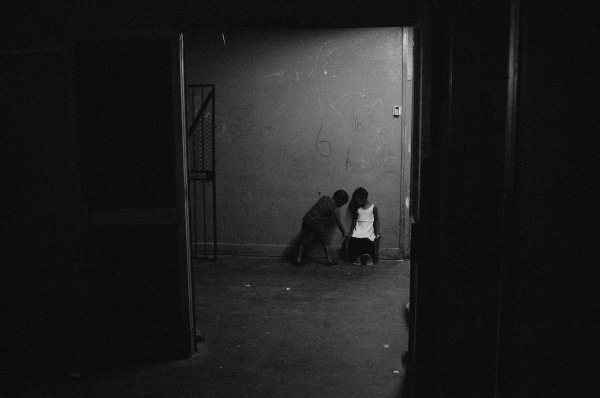Foreign migrants' struggle in the Johannesburg inner city during COVID-19
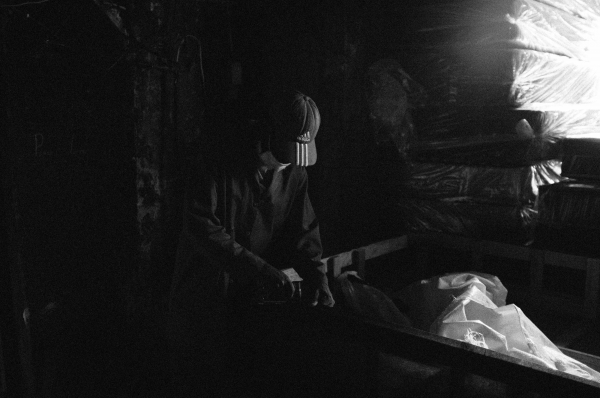
Elias*, from Zimbabwe, makes a living collecting and restoring discarded beds that are sold at informal markets. Johannesburg's informal economy plays a vital role in the survival strategies of many migrants, who often cannot work in the formal economy. Lockdown regulations have severely curtailed the functioning of the city's informal economy, placing many like Elias at risk of hunger and eviction.
The Johannesburg inner city is home to a large number of migrants, many of whom have left homelands caught in either poverty or conflict, or both. Some have fulfilled the elusive dream of a better life, but for many others the struggle for survival continues in South Africa. Xenophobic violence towards migrants has become an ever-present threat that simmers just below the surface as South Africans also move to cities to reclaim the space from which they were excluded during apartheid.
Onerous requirements and institutional failure coupled with bureaucratic red tape result in many being unable to acquire legal residency status, which effectively excludes them from the formal economy and government social support programmes. These undocumented migrants are relegated to the fringes of urban existence and have to survive on the scraps of the city’s wealth.
All photographs and text by James Puttick from his photo essay on
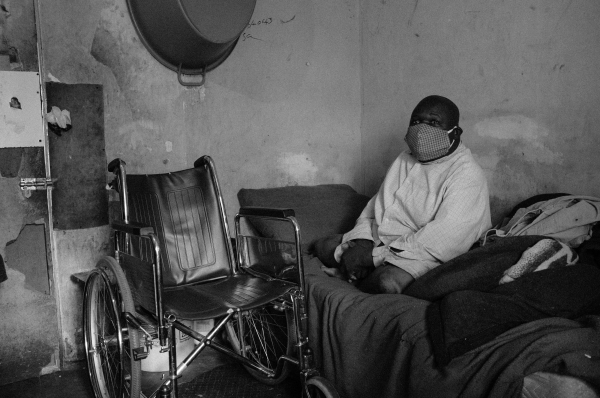
5 May 2020: Zimbabwean Admire Makondo,39, has lived in Johannesburg since 2009. He is diabetic and came to South Africa to access the medication he needs. Makondo makes a living begging in the affluent northern suburbs, but he has been unable to do so since the lockdown began. His medication requires that he eats three meals a day, and he relies on help from acquaintances in the building where he lives.
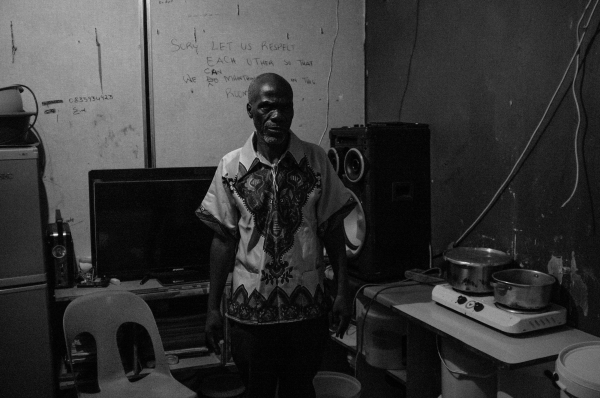
Enoch Mukanhairi, 58, from Masvingo in Zimbabwe, is blind and survives by begging on the streets of Johannesburg. He needs to pay rent, feed his family and pay school fees, but income has dwindled to nothing since the lockdown began.
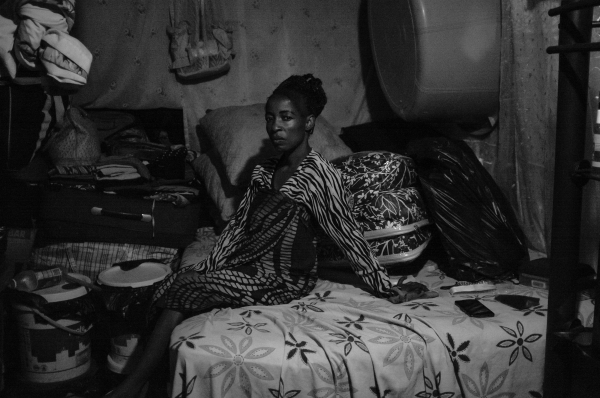
5 May 2020: Elizabeth*, 39, came from Harare in 2009, when living standards in Zimbabwe had fallen sharply and the public-health system had collapsed. She is a cleaner in an inner-city block of flats, but has not worked since the lockdown began. Elizabeth has been brewing and selling traditional beer from her small room so that she can buy food and pay her R800 monthly rental.
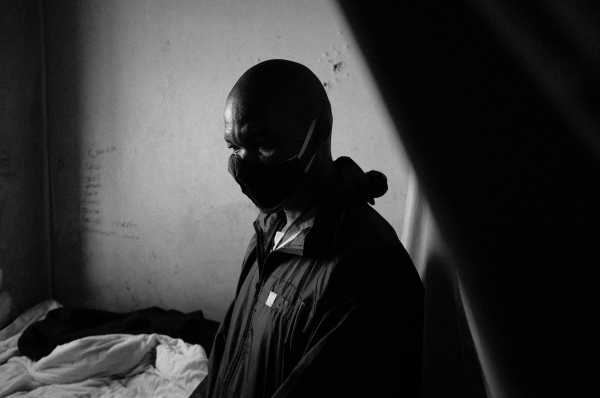
5 May 2020: Rashid Afiya, 38, from Machinga village in Malawi, has lived in Johannesburg for the past 15 years. He works as a shop assistant and sends money to his wife and three children back home. He has not been working since the lockdown began and so far has been forced to sell his cellphone and a blanket he was planning to send home.
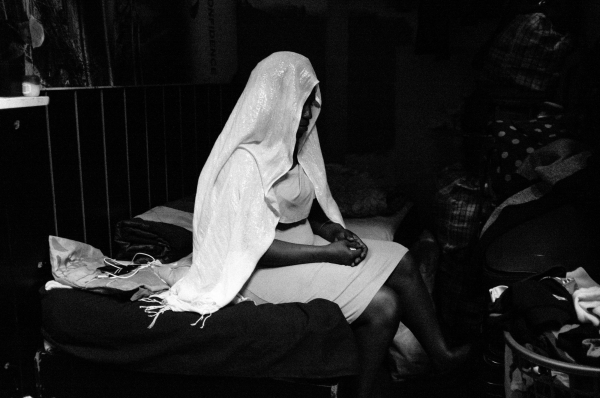
6 May 2020: Precious*, from Zimbabwe, lives with her husband and five-year-old son. A domestic worker in the city, she has not been able to work since the lockdown and has turned to sex work to feed her family. She says she is scared but has no choice. She tells her husband she is borrowing money from friends when he asks where she gets it.
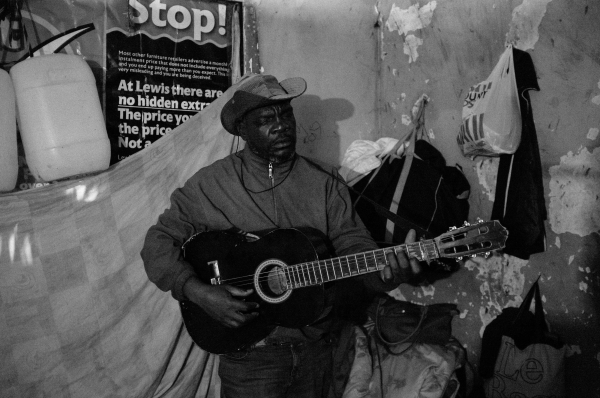
5 May 2020: Originally from Matabeleland in Zimbabwe, musician Saneliso Nkomo, 56, came to South Africa in 2002. He usually busks on trains between Johannesburg and Pretoria, but the lockdown has prevented him from doing that. He and his family of three now survive on a cup of black tea for breakfast and a plate of sadza (stiff maize meal porridge) with a small portion of vegetables for dinner.
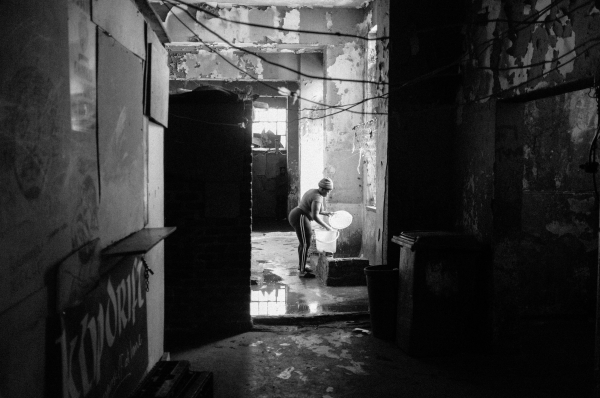
5 May 2020: A woman does her washing at a communal tap in a dark building in the inner city. For those living in these spaces, life was extremely hard before the pandemic, which has made their struggles more difficult.
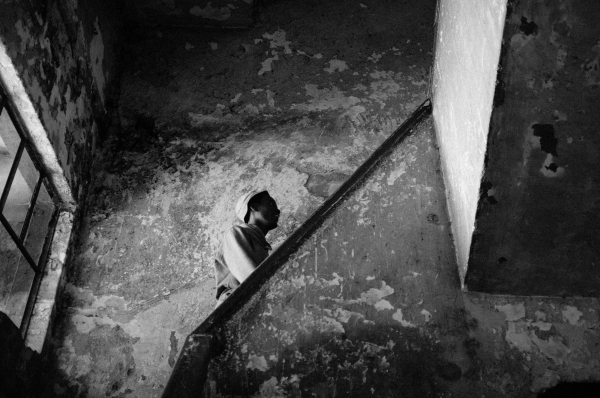
5 May 2020: A resident climbs the stairs of an inner-city building. These vertical slums lack basic infrastructure such as sanitation and electricity and are often utterly derelict. Many of their inhabitants are migrants who are unable to access the safer and more secure accommodation provided by the city's urban regeneration schemes.
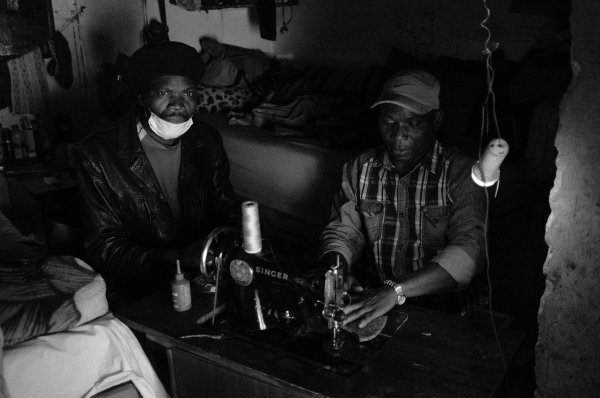
6 May 2020: From left, Malawians Martin Yusuf and Barnett Jesia have lived in Johannesburg since 2002. They make a living under the bridge at Ellis Park Stadium sewing and repairing clothes and selling recycled DVDs, electronic equipment, TV remotes and cables. The lockdown has meant they have shifted to making and selling face masks.

